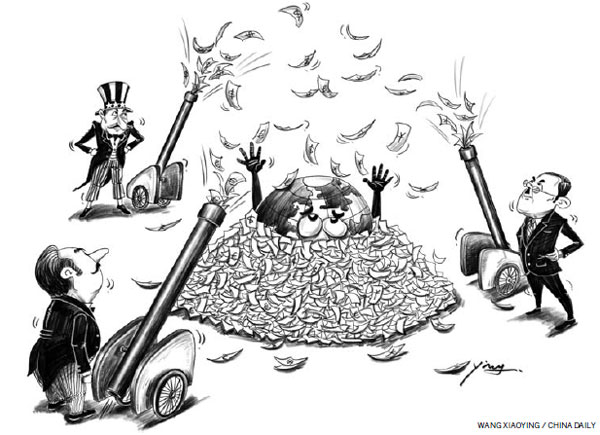Printing self-illusions a risky game
By Dan Steinbock | China Daily | Updated: 2013-02-06 07:41

In the past four years, central banks in the advanced economies have been opting for new rounds of quantitative easing (QE) because the global financial crisis has exhausted the traditional instruments of monetary policy. And with investors seeking higher returns, more QE has been driving "hot money" (short-term portfolio flows) into high-yield emerging-market economies.
As these monetary policies remain in place, they are growing less effective, but continue to inflate potentially dangerous asset bubbles in Asia, Latin America and elsewhere.
Initially, these policies were characterized as "extraordinary" but "temporary". The goal, or so it was said, was to support the recovery and create foundations for solid growth.
Photo















